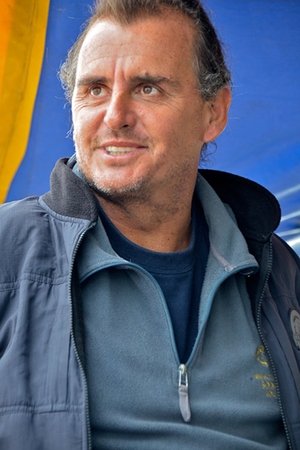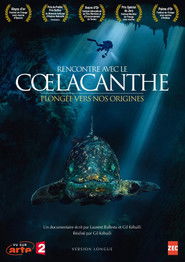
Peter Timm
Timm was born in Kroonstad, Free State, on February 15, 1963. He attended Kroonstad High School and became an electrician, setting up his own business. He began diving with the Welkom Underwater Club and, in 1991, took up trimix diving. In 1994, he opened the Triton Dive Lodge in Sodwana Bay and built it into a successful business with a worldwide reputation. Big, tall and friendly, Timm wasn't someone who dived just for record books or T-shirts. He was an amateur biologist and environmentalist. He photographed and studied species, including different types of algae, invertebrates and fish new to science. He collected biological specimens in the submarine canyons and made an important contribution to local marine science. Peter was one of South Africa's leading deep-sea divers and the first diver in the world to see a Coelacanth in its element. Il a pu voir ce fossile vivant de 2 mètres de long, doté de dents prodigieuses et de nageoires en forme de jambes, à une profondeur de 104 mètres à Sodwana Bay, dans le KwaZulu-Natal, le 28 octobre 2000, deux ans après le début de ses recherches. Lui et deux plongeurs stagiaires qui l'accompagnaient ont vu ce qu'ils pensaient être trois gros bars dans une grotte. "Nous avions une grosse torche sous-marine", explique-t-il. "Nous avons vu des yeux roses se refléter sur nous, aussi brillants que les réflecteurs d'une voiture, et nous avons donc nagé pour aller voir ce qu'il en était. C'était des Cœlacanthes !" Les scientifiques pensaient que les Cœlacanthes, qui sont apparus il y a 350 millions d'années, s'étaient éteints il y a au moins 65 millions d'années, jusqu'à ce qu'un Cœlacanthe soit trouvé dans le filet d'un chalutier de l'est de Londres en 1938 et identifié par un professeur de l'université de Rhodes. Timm a fini par voir 50 Cœlacanthes les yeux dans les yeux, dans leur propre jardin. Lorsqu'on lui a demandé à quoi cela ressemblait, il a répondu : "Si 104 mètres sous l'océan ont été l'habitat naturel du Cœlacanthe, c'est aussi devenu celui de Timm. Il a été l'un des pionniers de la plongée profonde avec mélange de gaz, appelée plongée trimix, pour laquelle les plongeurs utilisent un mélange d'oxygène, d'azote et d'hélium pour descendre à des profondeurs de 100 m et plus. He has made over 300 dives to depths of over 100 metres, unimaginable for most divers. Most of these dives have taken place in Sodwana Bay, in the unfathomable caverns close to the shore, where the continental shelf plunges into darkness. Exceptionally quick-witted, he has already extricated himself from situations in which less skilled or intelligent divers would not have survived. "If you don't know what you're doing, and even if you do, you can die very quickly," he said a few weeks before he died, on June 18, 2014, helping another diver who had found himself in trouble at a depth of 60 meters near Aliwal Shoal, off the coast of KwaZulu-Natal, while trying to retrieve a piece of equipment that had fallen from a research vessel. Peter Timm died at the age of 51. He is survived by his partner, Eve Marshall, and his two daughters.
